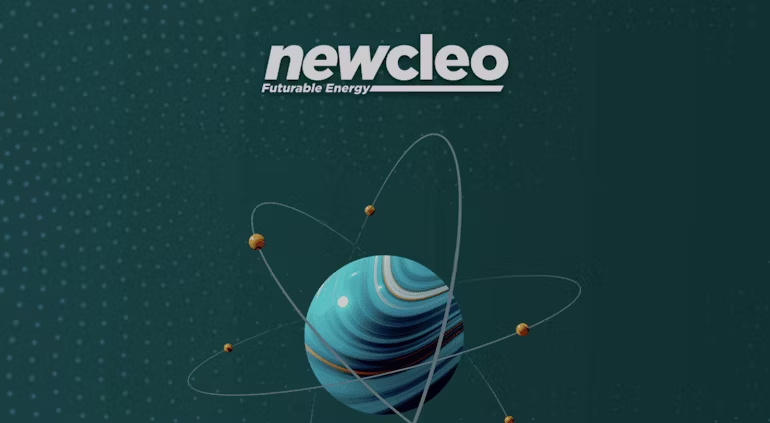Apex
- Shaurya Garg

- Sep 1
- 3 min read
The satellite industry for decades was hamstrung by expense, custom builds and lengthy delivery timelines, relegating space to a select set of innovators. Enter Apex, founded by CEO Ian Cinnamon and CTO Max Benassi in 2022 with the goal of flipping that on its head with mass produced standardized satellite buses. Building on Benassi’s experience at SpaceX and Astra, Apex is establishing an assembly line mentality for space hardware with the end result being customers are able to deploy spacecrafts nearly as easily as they would order from a catalog.
The net products, Aries, Nova, and Comet (coming soon), aim to simplify satellite and spacecraft delivery utilizing modular, configurable payload platforms. Apex operates out of its Los Angeles operation known as Factory One, with the ability to produce about a dozen satellites per month. With the elimination of non-recurring engineering, Apex has driven down cost and complexity while enabling customers to integrate their payload much quicker and easier.

Since the start of 2022, Apex has moved quickly. They apparently took one of their satellites from clean sheet to flight ready in less than one year. In April 2025, the startup raised $200M in Series C funding (led by Point72 Ventures, co-led by 8VC and backed by Andreessen Horowitz, Washington Harbour Partners, and StepStone Group). They are using that funding to further vertical integration, increase manufacturing capacity, build components and spacecraft inventory, and reduce supply-chain delays. One time worth noting was in February 2025, when Apex also obtained a $45.9M contract with the U.S. Space Force, adding credibility and momentum into government and defense. Apex has also rapidly grown its employee base to approximately 150, and proposes employing 250 by the end of 2025. The growing headcount is critical to the company’s plan as they scale their production, tighten vertical integration, and prepare for the ramp-up to the Nova and eventual Comet platform. Apex is currently headquartered and manufacturing in Los Angeles, California, but it is preparing to grow, and the company is targeting markets across Europe and Asia as demand for satellite constellations in communications, Earth observation, climate, and defence increase.
Apex is gaining notable momentum on the financial front. Industry analyses estimate the company's current annual revenue at approximately $38.5 million, with an estimated average revenue per employee of about $323,529. There are no public disclosures suggesting that Apex has booked a profit, yet this is somewhat predictable for a high-growth, capital-intensive startup that is focused on scaling production and vertical integration, with a series of fundraising events that total north of $300 million. These capital injections validate investor confidence in Apex's scalable model, despite profitability being some distance away. Apex's pricing paradigm combines affordability and scale. Apex distinguishes itself from traditional expensive aerospace companies that manufacture custom-designed spacecraft, by deploying standardized satellite buses with modular features (customers only pay for the capabilities as they want). This keeps the upfront costs low and shortens delivery times, which creates predictability and transparency around spacecraft purchasing. While Apex currently derives most of its revenue from direct satellite sales of hardware, it also receives revenue from integration services, mission operations support, and subscription revenues on service agreements. Apex's earning model emphasizes efficiencies and vertical integration rather than high markups. While the direct revenue commodity will create reasonably strong margins based on current scale, their model reinforces their long-term sustainability as they scale.
Apex operates in a highly competitive landscape. Its competition comes from other manufacturers offering small and medium-class satellite platforms like York Space Systems, Terran Orbital, and Blue Canyon Technologies. Established aerospace original equipment manufacturers (OEMs) such as Lockheed Martin, Airbus Defence and Space, and Northrop Grumman are also building custom spacecraft. What separates Apex from its competition is its ethos of mass production. Its platform-centric architecture, speed of delivery, and cost discipline allow Apex to meet the market's need for commercial constellations and the compelling need of an impending defense mission. Apex is trying to combine Ford's manufacturing ethos with space technology to position itself as a differentiator in the new space economy.
CEO Ian Cinnamon is confident in the company's vision to democratize access to space by treating satellites as products and not projects. With a funding trajectory, the company has the ability to scale quickly and continually add team members, while upgrading its manufacturing facilities. The opportunity ahead, coupled with how Apex is changing the satellite manufacturing process, presents an exciting opportunity for humanity to reach for the stars. By the time the company scales to its potential, Apex may not only change how satellites are manufactured, modified, launched and utilized. Apex could significantly reduce costs while removing the bespoke nature of satellites, as it supports any [individual or organization] looking to push /lean into accessing space.
Click here to access Apex's website.









Comments